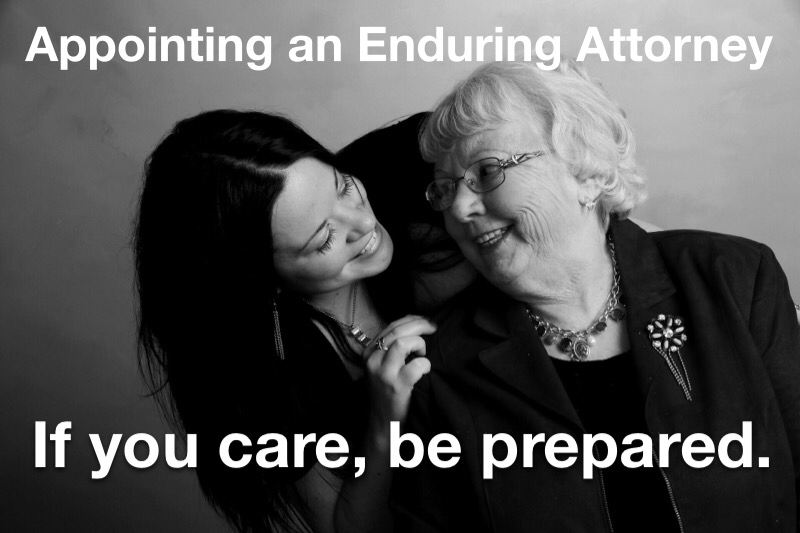|
So you have found a business you would like to buy. It’s just what you have always wanted to do, and there’s a real market for it. If this sounds like you, then read on.
Before you sign a sale and purchase agreement (contract), you really should take a close look at the existing business - identify the business’ major strengths and weaknesses so that you can identify any concerns you might have. These concerns might be addressed by adjusting the price you are prepared to pay or detailing what you want in the contract. Find out why the business is being sold. You also need to ask yourself some key questions, including: 1. Who will be the purchaser? You have to decide on an ownership structure to suit your needs. You could own and operate the business as a sole trader, in partnership with one or many other owners, or through a company or trust. Alternatively, you could divide the ownership and operation of the business and use one entity to own the assets of the business and another entity to operate the business. 2. What will you purchase? Most business purchases involve purchasing the business assets (including intellectual property), stock and contract rights (such as leases). However, if the business is owned by a company it is possible to purchase the shares in that company, rather than the business itself. This can be a trickier option, so you should seek legal advice because if you take on shares in a company, you will take on the company’s trading history including its liabilities, existing agreements, any tax due and holiday pay liabilities. 3. What is your offer? You may only be able to get limited financial information prior to making your offer so your offer should be subject to an investigation of the business (generally called a “due diligence condition”). This will give you an opportunity to adjust your valuation if your offer turns out to be too high after you receive more information. However, you need to remember that your first offer will create an expectation for the vendor and it may be hard to renegotiate the purchase price after the contract is signed so you still need to take your first offer seriously. You need to consider how the purchase price should be allocated between fixed assets, trading stock and goodwill and work out your options for payment of the purchase price. A fixed price payable on settlement date is easier and cleaner but you could put in place a buy out or partnership plan with the vendor. HINT: Involve your accountant in this process as there are many ways of valuing a business (and if you don’t have an accountant, then you should get one). 4. What do you know about the business? As discussed above, a due diligence condition gives you an opportunity to complete a more thorough review of the business before you are committed to the purchase. It gives you time to collect information to verify the business’ performance. You should involve your lawyer, accountant and other advisers in this due diligence process. During the due diligence period, take the time to look beyond the financials and obtain other information regarding the business’ reputation. Research the market to determine whether demand for the product or service is increasing or decreasing. Research the competition: are they growing? Ask whether it is a business that is easy to replicate and whether there is any point of difference for the business. Talk with as many people as you can within the industry including the business’ clients and suppliers, other professionals within the industry and even the competition. You may decide that you do not want to purchase the business after you have completed your investigation. HINT: A good due diligence clause will allow you to cancel your purchase if that occurs or to renegotiate the terms (including the purchase price) if required. 5. Is there a lease? Many businesses operate from leased premises. You need to ensure there is a lease in place if required and if so get a copy of it to review the lease terms. You need to be comfortable with the length of the remaining lease term and the obligations you will take on under the lease as the new business owner and tenant. You may want to negotiate new terms with the Landlord directly to make the lease a more useful asset however, this may not be an option. Having Landlord consent where necessary is a must-do condition of your contract. 6. What warranties should you include in the contract? Warranties are promises that the vendor makes to you about the performance and quality of their business. You can sue the vendor after settlement if the warranties turn out to be incorrect. Warranties therefore reduce some of the risks you face when purchasing a business. However, a vendor warranty is only as good as the financial backing of the vendor after the sale because a breach of warranty alone does not mean you can get out of the contract and get your money back. Although warranties are useful you should make sure you are happy to purchase the business without the warranties. A standard contract contains the following warranties from the vendor:
HINT: To make the warranties more useful where the vendor is a company, it is a good idea to have the contract personally guaranteed by the directors of the vendor company. 7. Are there any key staff? It is important to identify staffing requirements and key employees for the business as quickly as possible. Employees are often an essential and very valuable asset of the business. If you are purchasing a business (rather than shares in a company which operates a business) your purchase contract will need to address the responsibilities of the vendor to the staff at settlement and ensure that any existing staff entitlements rights are met by the vendor to commence a fresh contract on your terms with the staff members. HINT: If any staff members are particularly important, you may want to make it clear that you will only purchase the business if those key staff members accept your employment terms (Don't forget you will need new employment contracts and there is likely to be an extra legal cost involved). 8. Remember IT and Social Media Business trade marks, trade secrets, processes, information and product names are very important and can be significant assets for many businesses. Don’t forget about the social media and internet presence of the business. You need to ensure these items are identified and included in your purchase contract. 9. What stock is included in the purchase? Are there supply agreements in place and what conditions need to be met to transfer those agreements to you? If the business is a franchise, the ongoing purchase of stock may be tied up with the franchise arrangements. Also consider what trading stock is actually included in the purchase and make sure the estimated value of that stock is specified in the contract. Under a standard contract the final value of trading stock is determined by way of a joint stock take. You will need to purchase stock up to the estimated stock value as specified in the contract plus a maximum percentage adjustment. You need to make provision for potential stock adjustments in your finance arrangements. Should the final stock exceed the maximum allowance then you can elect what stock to take and the vendor can be required to take the excess stock. Your contract might also need to ensure that you are not purchasing any redundant stock that is unsaleable. 10. Franchise Purchasing a Franchise requires a thorough review of the Franchise agreement by you and your lawyer before entering into the purchase contract. You need to be fully aware of your potential liabilities and responsibilities under the contract. You will probably be required to pay a Franchise fee and you need to know what support and advantage that fee will give you. For an existing business the Franchise agreement will need to be assigned to you and you will therefore need to satisfy the head franchisor’s requirements and work with them in order to take over the business. 11. What is the state of the assets? The vendor should provide you with a thorough list of all business assets. You need to review the condition of those assets and consider:
12. Can this business exist without the vendor? Review the vendor’s role in the business to ensure that the business can continue without them. Some businesses are so tied up with the vendor’s reputation, skill and undocumented business knowledge that without the vendor there is effectively no business? 13. Can you afford the business? A close analysis of the financial information you obtain for the business during the due diligence period is very important. You need to plan beyond payment of the purchase price and consider your financial ability to meet the business’ ongoing financial commitments such as its working capital and cashflow requirements. HINT: Most banks give you access to on-line business planning tools. Its worth downloading one of those to set up a business plan and cash flow projections. 14. Does this business fit you? Is the business in an industry that you know anything about or will you be starting from scratch? What is your level of responsibility and ongoing role going to be in this business and are you capable in regards to time, skill and experience to give the business everything that it needs? Conclusion When buying a business it is easy to get excited about its future. However, you can’t ignore the business’s past. To do so creates significant risks for you. Before you sign any business purchase contract it’s important to consider the types of issues raised in this article and discuss your plans with your advisers. They can help you to manage the risks involved. The aim of reviewing the business history and having conditions in your business purchase contract to enable more review opportunity is to identify the risks involved. If you know the risks, you are more able to make clear-headed decisions about buying and successfully driving the business into the future.
0 Comments
Trusts are building blocks for Asset Planning......but only if you know how they workNew Zealand families have created more trust deeds per capita than most countries, but do the people using them really understand what a Family Trust is and what it can do? If you don't, your trust may not be as effective as you think. This article will hopefully help to shed some light for you. TRUSTS IN PLAIN ENGLISH
What does a family trust do? The idea with a family trust is to protect the ownership of your assets. Here’s how trusts work: you transfer the legal ownership of your assets to the trustees while continuing to use and enjoy them as long as the trust deed permits. For example, if your family home is in a trust, you no longer personally own the house – but you can still live in it if that’s what the trust deed allows and the trustees agree. Benefits of a family trust Family trusts are designed to protect your assets and benefit members of your family beyond your lifetime. When your assets are in a family trust you no longer have legal ownership of them – the assets are owned by the trustees, for the benefit of your family members. People usually set up a family trust to get some benefit from no longer personally owning an asset. A family trust may be useful to:
A settlor: The person or company who creates the trust. Appointor: The Appointor is the person who can appoint or remove Trustees. This is usually the settlor but it can be someone nominated by the settlor. It is important that the Appointor always has someone nominated to replace themselves if they can no longer do the job. Trustees: The people who manage the trust. The settlor can also be a trustee. It’s also a good idea to appoint an independent trustee who is not a beneficiary. Professionals like lawyers and accountants (or companies they have set up) often act as independent trustees. Your Trustees need to be people you trust to administer the Trust properly and fairly. Beneficiaries: The people who benefit from the trust, for example members of immediate family. Guardian: This person has certain powers to keep an eye on a trust’s operation. Where a trust deed provides for a guardian, it will usually require that the Trustees obtain consent from the Guardian before major decisions are made. Often the Appointor and the Guardian may be one and the same person but there are sometimes very good reasons to make those people different. Special Trust Advisor (previously called an Advisory Trustee): This person advises the Trustees but is not a Trustee and cannot compel the Trustee.Most Family Trusts will not require a Special Trust Advisor, but with an increasing tendency to outsource financial advice there is likely to be an increase in the number of trust deeds involving one. How long does a Family Trust last? A trust doesn’t usually end with the settlor’s death – that is one of the main reasons that trusts are created. A trust usually lasts for a maximum of 80 years from inception but as of January 2021 that can be extended to 125 years. How family trusts work A legal document called a ‘trust deed’ will formally set up the family trust. It will name the trustees, list the beneficiaries, and state various rules for the administration and management of the trust. The trust deed needs to be very carefully written. The “one size fits all” trust deed will fit as well as badly as most items with that label. Asset transfer After you have your trust deed prepared, you need to decide what things you own will go into the family trust, and what their value is. In many cases this will be the family home, but other things of value like cash, bank deposits, shares, artwork etc can also be included in the trust. Once the family trust is formed assets can be sold into the trust, at market value. This is where it can get a little tricky. Although the trust wants to buy, say, your house (and you want to sell it to the trust) the trust may have no money to buy it. How then does the family trust pay for the house? The answer to this is that you lend the family trust the money. Initially this is a ‘paper’ transaction – you sell the house to the trust, and the trust owes you a debt. However, the debt that the trust owes you is still counted as a personal asset. So you will need to get rid of the debt so you can achieve your aim of owning less in your name. The way you do this is through ‘gifting’. Gifting Most people who form trusts ‘gift’ away the debt that the trust owes them. IN In New Zealand, before October 2011 there was a limit of $27,000 that anyone could gift in one year without paying a tax called ‘gift duty’ to Inland Revenue. However, gift duty has been abolished and there is no limit to how much you can gift in one year. This means that where previously it would have taken 22 years to gift the value of a house worth $600,000 to a family trust without paying gift duty, you can now gift the whole amount of the debt straight away. However, the decision of what to gift and when should be considered carefully after receiving legal and financial advice. Note that gifts are still included in the assessment for a Residential Care Subsidy. The costs Family trusts can be complex and time consuming to administer. It costs money to set them up and there are generally ongoing (at least, annual) legal and accounting fees. The risks If a trust is not set up or managed well, there can be considerable inconvenience and cost. There’s the risk of having the trust declared a ‘sham’, which would mean that the assets are not really the trustees’ but are in fact still yours. If the trust is declared a sham you may lose all of the advantages that you were hoping to gain from it, and the trustees may be penalised as well. Once you put your assets into a trust, you no longer personally own or control them. Instead, ownership passes to the appointed trustees, who must act under the terms of the trust deed in the best interests of the beneficiaries. There have been cases of family members suing other family members for a breach of the trust’s provisions. The courts treat claims of this sort quite seriously and they will normally be expensive to resolve. Forming a trust is a big decision. When going down this route, make sure that it is established properly, for the right reasons, and managed well. Keeping clear records of everything that affects the trust is very important. Trusts are complex. Legal advice is essential. Accounting advice is also recommended. This article talks about Trusts in New Zealand and there can be significant differences in the way trusts can operate from country to country. This article is for information only and should not be relied on as legal advice. On Friday 17 April 2020, the New Zealand Government made urgent new laws for the signing of Oaths and Affirmations, and Wills by means of video conferencing (Zoom, Facetime, Skype etc.)
This is a significant step. Although as a lawyer working in this community, I love meeting my clients face to face, during Level 4 (and the likely Level 3 restrictions), I simply can’t. To do so, is a breach of the COVID-19 rules and as importantly poses a risk to community health and safety. Legal work, unless it relates to protection of self and property, or other urgent court matters is not an essential service under current lockdown rules. I, along with hundreds of other lawyers, have been advocating on behalf of our clients since before the lockdown to ensure that important so called ‘non-essential’ legal matters can continue to be dealt with. This has meant that liaising with banks, and other parties, I have prepared and/or witnessed many legal documents (including Enduring Powers of Attorney) by video conferencing services during the lockdown period. But there have been problems doing this with Wills. Now, there is a clear way to prepare a formal, valid will using video conferencing and clear guidelines for Oaths/Affirmations, Wills and Enduring Powers of Attorney. I continue to be able to offer ordinary witnessing/certifying duties (by video conference) and to assist with legal questions you may have by telephone, free of charge for my local community. Please let me know if I can help. Epidemic Preparedness (Oaths and Declarations Act 1957) Immediate Modification Order 2020 Epidemic Preparedness (Wills Act 2007—Signing and Witnessing of Wills) Immediate Modification Order 2020 Key Legal Matters you should considerAs businesses by necessity rapidly track to online options, there’s more than just a great looking website or app to think about. Whether you sell online or in person, you need to tell customers important information about your products or services — and how you conduct your business. Key legal issues to think about include:
Terms and ConditionsImportant information that should be part of your online presence includes:
Other mattersContracting Out Businesses that sell consumer products or services to other businesses can contract out of the Consumer Guarantees Act (CGA) and the Contract and Commercial Law Act, which has replaced the Sale of Goods Act. It might be your business contracting out, or it might be one or more of your suppliers. Contracting out means that if something goes wrong, eg a domestic oven bought by a baker breaks down, the seller does NOT have to pay for repairs or give a refund or replacement — except to the extent stated in the contract. Contracting out must be put in writing, eg in terms and conditions or contract. If not, the law applies. It doesn’t matter if the document is signed or not. If the sale goes ahead after receiving terms and conditions or contract, it’s taken to mean the buyer agrees to the terms. Phrases like these, indicate an attempt to contract out: It is a condition of sale that the Consumer Guarantees Act 1993 will not apply to any goods or services acquired for business purposes. No other warranties either express or implied by law are made with respect to these products. If your supplier’s contract attempts to contract out, look closely at what your protection is in their supply contract and think about whether you can negotiate special conditions. Privacy PolicyThe government offers a tool for setting up a plain English privacy statement. You can access it by clicking here: Priv-o-matic This article is not a substitute for legal advice. If you have any questions at all about this article and migrating your business to an online presence, feel free to contact me at trish@mobilelawsolutions.co.nz. or clicking on the button below
What is the bright-line property rule and what does it mean to you?A ‘bright-line rule’ is a clear and defined rule, like a line in the sand, that leaves no room for interpretation. The bright-line rule you are most likely to have heard of is the bright-line property rule.
What is the bright-line property rule? The bright-line property rule means that if you sell a residential property you might need to pay income tax on any gains. How it works depends on when the property was bought.
When does the clock start ticking? Generally the bright-line period starts on the date the property title is officially transferred to you, which is the date the property transfer is registered with Land Information New Zealand (LINZ) - NOT the day you sign the Contract. Different dates apply if you sell the land before your purchase was registered with LINZ, if you bought the land because of a subdivision of property (for example as a sale “off the plan”), or if the property is purchased in another country. Are there exclusions? There are some situations where the bright-line rule does not apply: Exclusion 1 - Main home If the property is the family/main home it will be excluded. Your main home is the property you have the greatest connection to. To be eligible for the main home exclusion to the bright-line rule, you need to have used a property as your main home for more than 50% of the time that you’ve owned it. You also need to use more than 50% of the area of the property as your main home. (The area that counts as your main home generally includes things like gardens and related buildings like the garage). If you live in more than one property, you’ll need to decide which is your main home as you can only have one. Also, you can only use the main home exclusion twice over any two year period. You’d have to pay tax on any profit you make from the sale of a third property in two years because you would not be eligible for the main home exclusion. You’re also not eligible for the main home exclusion if you show a regular pattern of buying and selling residential property. Residential properties held in trust can use the main home exclusion under the bright-line rule if:
Exclusion 2 - Inherited Property If the residential property was inherited, or if the seller is the executor or administrator of a deceased estate then the property is excluded. Exclusion 3 – Property (Relationship) Act settlement If you receive a property as part of a relationship settlement agreement, you will not need to pay income tax on the property when it’s transferred to you. However, if you go on to sell this property within the bright-line period for this property, the relevant bright-line rule will apply. What are the tax implications of the bright-line property rule? If you sell a property that falls under the bright-line property rule, you will need to submit an income tax return and a property sale information form - IR833 at the end of the relevant tax year. Residential land withholding tax (RLWT) will apply to your property sale if: a) the property sold is in New Zealand and defined as residential land, and b) the seller:
What if the property is sold at a loss? If a residential property that the bright-line rule applies to is sold at a loss (and no exclusions apply), these losses are “ring-fenced” as to residential property sales so that if you owe income tax on another residential property sale in the future, you can subtract these “ring-fenced” property losses from the income you earned on this later sale. That means you’ll pay less tax on the later sale. What about non-residential property? The bright-line rule only applies to residential property. A property is not residential if it’s mainly used for business or as farmland. That means when you sell farmland or business property, the bright-line rule will not apply. But you’ll still need to follow existing tax rules. Also, whenever you buy a property intending to resell it, you’ll need to pay tax on any profit you make when you sell that property. This is called the ‘intention test’. The intention test is not a new rule. It’s been around for a long time. A final word If you sell a residential property outside of the relevant bright-line period for you, the bright-line rule will not apply to your property sale. But the intention test may still apply. Remember, all existing property tax rules still apply. So even if the bright-line rule does not apply in your situation, that does not necessarily mean you will not need to pay tax on your property profits. Please note: This article is designed to provide general information regarding the subject matter covered. It is not intended to serve as legal or taxation advice related to individual situations and cannot be relied on as such. Because each individual's legal situation is different, specific advice should be tailored to the particular circumstances. This Part 3 of my 3 part series on Enduring Powers of Attorney, explores matters to consider in Preparing an Enduring Power of Attorney (Care and Welfare) (“EPA Care and Welfare”).You don’t need to have all your answers lined up before you get advice on an EPA Care and Welfare but it certainly helps to process the questions in your mind. The following list includes 10 key things to think about:
1. Do you need to cancel any previous EPA Care and Welfare appointment? If you have prepared an EPA Care and Welfare before, you may need to cancel the appointment. If so, the attorney/s named in the previous power of attorney need to be formally notified in writing by you, your lawyer or your new attorney/s. 2. Who would you like to be named as your attorney/s – will they agree? You can only name one attorney to act at any one time in relation to care and welfare matters. The person you appoint should be over 18 years of age, competent and trustworthy. You should talk with that person or people about the role you are asking them to adopt and your expectations. You will need their full name, address and contact details to complete your instructions. 3. Do you want to name a successor attorney/s (in case the first named attorney is unable to continue in that role) – will they agree? I recommend you do nominate a successor attorney if possible as it means the document will survive should there be any reason why your attorney is unable to act (and therefore be more cost effective). 4. When do you want your successor attorney to act? When making an Enduring Power of Attorney you must also determine the circumstances under which your enduring and substitute enduring attorneys will act. For example, you might direct that your enduring attorney act only when they are in New Zealand and that you would like your substitute to act when your enduring attorney is out of the country. 5. Should the EPA Care and Welfare apply to all your Care and Welfare decisions or only to some of your Care and Welfare decisions? In most cases, I would recommend broad powers with the inclusion of conditions only(rather than limitations on powers) if there are concerns about the way specific Care and Welfare matters are to be dealt with. 6. Do you want to impose conditions on any of those powers? You might for example want to make it a condition that you need to be placed in care that there are certain things you would like taken into account such as if animals are allowed. 7. Who should your attorney consult with and what should they consult about? The requirement of consultation is a requirement that takes effect before action is undertaken. Examples of persons with whom you may wish your attorney to consult are numerous but obvious ones might include your Enduring Power of Attorney (Property) or lawyer. You will need to provide your adviser with full names, addresses and contact details if you wish to include people to consult. 8. Who should your attorney give information to and what information should they give? The requirement to provide information takes effect at any time but usually after an action is undertaken. This might involve an attorney providing information to your children or step children for example. By including a provision to disclose information you can help to ensure that your care and welfare matters when in the hands of an attorney are more open to disclosure. You will need to provide your adviser with full names, addresses and contact details if you wish to include people to inform. 9. Should the attorney be entitled to profit from acting as attorney e.g. should attorneys be allowed to charge for their time? All professional attorneys are entitled to charge fees. This can prove costly for your estate but may be necessary. You may also wish to reimburse an Attorney, professional or otherwise for expenses they incur in helping you. 10. What other terms and conditions would you like to impose? There are some things you can do with an EPA Care and Welfare and some that you can’t. Your legal adviser will be able to take you through your options. Be wary of one size fits all EPA Care and Welfare documents. They are like one size fits all Wills. Often ill-fitting and some times not even valid. Preparing a sound EPA Care and Welfare takes time and consideration and shouldn’t be left until you are in a hurry to get documents done. Make some notes based on the matters raised above, before you go to meet your adviser and you will be well prepared. There’s been a rise in the number of reported cases of people contesting wills. This has led some, incorrectly, to suggest that there’s no point in making a will. Rather than not making a will at all, and leaving the fate of your estate to very rigid rules laid down by statute, below are 11 practical steps you can take to help to protect your Will from being contested. 1. Meet the formal requirements for a will.When writing your Will make sure you comply with the formalities set out in section 11 of the Wills Act 2007. Apart from minor exceptions, for a will to be valid it must meet the following criteria:
2. Understand the effect of the Property (Relationships) Act 1976.The Property (Relationships) Act 1976 provides for your surviving spouse, civil union partner or de facto partner to choose whether to apply for a division of relationship property under that Act or to take what is left to them under your will, or, where there is no will, under the laws of intestacy. In deciding what to gift your spouse or partner under your Will you should take this into account. You will need independent legal advice if you aim to gift less than half of your estate to your spouse or partner. 3. Protect your estate from claims under the Family Protection Act.IFor a person to bring a claim under the Family Protection Act (1955) they must firstly, be eligible to do so and secondly, demonstrate that the way in which a person’s estate has been disposed of fails to make reasonable financial provision for them. The court can take many factors into account, including a person’s financial resources, the size of the estate and any other relevant factor. As such, if you are considering excluding or limiting the provision for any one of the following :
Alternatively it may be worth considering leaving a smaller gift (taking into account the potential costs of a claim and prospects of success) perhaps with a clause to say that if that person challenges your will then they forego their gift. While this in itself is unlikely to prevent a claim, it can discourage a person to bring a claim. 4. Take care to properly document promises made by you.A person can make a claim against your Will under the Law Reform (Testamentary Promises) Act 1949 if you have promised to leave that person something in your will in return for services rendered or work done, and you have not kept that promise. For example, the person may have taken care of you when you were ill or looked after your property, and in return you may have promised to provide for the person in your will. It may not be necessary to prove that a promise was made in writing. The court may be prepared to infer from the surrounding circumstances that there was a promise. If the court finds that such a promise was made then it can award the claimant payment out of your estate which it decides is reasonable, considering all the circumstances of the case. Documenting your promises will reduce the risk of this happening. Putting legal agreements including promises into writing is a really important thing to do anyway. 5. Ask a medical practitioner to provide a report about your “testamentary capacity”One of the main grounds upon which wills are challenged is on the basis that a person lacked the necessary mental capacity to give instructions for and sign their will. If you suspect there will be questions over your mental capacity, if you have had a diagnosis that could affect your mental capacity in the future or if you are elderly, ask a GP or suitably qualified medical practitioner to provide a report or letter confirming that you have testamentary capacity. Testamentary capacity is a legal concept. Given the specific nature, it is best to have a lawyer request a report on your behalf to ensure that the medical practitioner knows precisely what they need to determine. The letter from your lawyer and the report from your medical practitioner would then be stored with your Will. 6. Store your will in a safe place.You don't need to leave your Will with your lawyer, just make sure it is safe, and also make sure your Executor knows where to find it. Many requests to prove a Will in court (referred to as “Probate”) are made on the basis of either a copy will or a lost will. While some of these are accepted, many are rejected because where an original will cannot be found, there may be a legal presumption that it was deliberately revoked by the person who made it. In that case any earlier will, (or, where no such will exists, strict legal rules) may dictate how that estate is dealt with. 7. Keep detailed records of your wishesEnsure that your lawyer takes detailed attendance notes of your meeting, conversations and instructions when they prepare your will.If someone wishes to contest a will then usually they will request a copy of your will file from the lawyer who prepared your Will. The more thorough the notes of your wishes, and the more obvious it is that the terms of your will have been discussed in detail with you, and that you have received legal advice about your wishes the less likely it is that someone will successfully contest a will. If you are making any significant changes that have not been reflected in any previous wills you have made, discuss these with your lawyer. Again, the likelihood of a successful claim is reduced if there are statements recording the reasons behind your wishes. 8. Destroy any previous original willAlthough in most cases any previous will may be revoked on signing your new and correctly executed will, provided that will has a revocation clause dealing with any earlier wills, once you have put a new valid will in place, ensure any old original wills and any copies you have of them are destroyed so as not to cause confusion on your death. This is particularly important if you believe people who were previously provided for but now you are removing from the will may find your old will among your possessions and use that to justify bringing a claim to challenge your will. 9. Protect yourself from the risk of undue influence.If you believe that you are being pressured into making a will then talk to your lawyer, family, friends or anyone else who may be able to help and, if necessary, record your concerns in writing. If you have concerns that someone will, unjustifiably, argue that you were forced or coerced into making a will, or that the provisions were not your true wishes, there are steps which you can take to avoid this. If possible, ensure that anyone who benefits under the will is in no way involved in the will making process. If using a lawyer, book the appointment yourself, rather than relying on someone else to do this, ideally attend alone and be clear that the wishes are your own and ask your lawyer to make a clear attendance note. 10. Give your Will a regular 'health check'The law and family circumstances change. Tax laws, births, deaths, marriages, divorces and even remarriages can all have an impact on your will and the extent to which any will reflects your wishes. Once in place, review your will at least every few years and especially so if your personal situation changes e.g. on marriage, divorce or death, or if your financial position changes, for example, if you have provided for one child by gifting them a large asset in your Will but you subsequently sell it. 11. Invest in professional advice and draftingUltimately, the best protection is to have your will professionally prepared by a lawyer with estate planning expertise. Your lawyer should make your will clear and unambiguous and will consider your assets and your gifting wishes to work out the best, most secure way to achieve what you want to happen. You spend years working to build up your assets. It is well worth paying a relatively small cost for an experienced professional to ensure peace of mind and that you have done your best to safeguard your will and your loved ones’ interests.
This Part 2 of my 3 part series on the appointment of an Enduring Powers of Attorney, explores matters to consider in Preparing an Enduring Power of Attorney to deal with financial matters. In each jurisdiction it might be called something else, but in NZ such a document is called an Enduring Power of Attorney (Property)(“EPA Property”). It’s never too early to have an EPA Property prepared. If you have a house, land, or bank account you have financial interests that would need to be attended to if you became mentally incapacitated. You don’t need to have all your answers lined up before you get advice on an EPA Property but it certainly helps to process the questions in your mind. The following list includes 12 key things to think about:
Do you need to cancel any previous EPA Property appointment? If you have prepared an EPA Property before, you may need to cancel the appointment. If so, the attorney/s named in the previous power of attorney need to be formally notified in writing by you, your lawyer or your new attorney/s. Who would you like to be named as your attorney/s – will they agree? Usually, you can name more than one attorney for financial matters and they can work together. Some jurisdictions limit the number. The more attorneys you choose to work together, the more likely there might be problems. I would recommend you consider keeping the number to a maximum of 2. The person or people you appoint should be financially competent and should be trustworthy. You should talk with that person or people about the role you are asking them to adopt. You will need their full name, address and contact details to complete your instructions. Do you want to name a successor attorney/s (in case the first named attorney is unable to continue in that role) – will they agree? I recommend you do nominate a successor attorney if possible as it means the document will survive should there be any reason why your attorney is unable to act (and therefore be more cost effective). Do you want your EPA Property to become effective immediately or only if you are mentally incapable (with a Doctors certificate certifying incapacity)? With trusted family members, if you are travelling a lot, or physically incapacitated it might be that you would prefer the EPA Property to come into effect immediately but this gives immediate powers to the attorney and you might prefer to retain sole power so long as you are mentally capable. If you have named more than one attorney, are they to act jointly (i.e. both must decide) or severally (either can decide) or by majority vote? My advice on this is very personal to your circumstances. My usual recommendation is joint power for 2 or majority power for more than 2 but, for example, there are cases where one of 2 attorneys may travel a lot and that can cause complications in signing documents. Should the EPA Property apply to all your property or only to some of your property or to do specified things? You may wish to limit the EPA Property to dealings with bank accounts only. In most cases, I would recommend broad powers with conditions if there are concerns about the way specific items of property are to be dealt with. Do you want to impose conditions on any of those powers? For example, you may want to include special conditions in relation to the sale of the family home or repayment of loans. I recommend preparing your EPA Property at the same time or at least consistently with the terms of your Will so that, for example if you intend to give someone a life interest in your home, that is reflected in your EPA Property conditions. Who should your attorney consult with and what should they consult about? The requirement of consultation is a requirement that takes effect before action is undertaken. Examples of persons with whom you may wish your attorney to consult are numerous but obvious ones might include your accountant or lawyer. You will need to provide your adviser with full names, addresses and contact details. Who should your attorney give information to and what information should they give? The requirement to provide information takes effect at any time but usually after an action is undertaken. This might involve an attorney providing information to your children or step children for example. By including a provision to disclose information you can help to ensure that your financial circumstances when in the hands of an attorney are more open to disclosure. You will need to provide your adviser with full names, addresses and contact details. Should the attorney be entitled to profit from acting as attorney e.g. should attorneys be allowed to charge for their time? All professional attorneys are entitled to charge fees. This can prove costly for your estate but may be necessary. You may also wish to reimburse an Attorney, professional or otherwise for expenses they incur in helping you. Should your attorney be allowed to apply to the Family Court if for some reason your will is out of date and needs to be changed? There may be a change in your financial circumstances while the attorney is acting on your behalf that alters the intended effect or validity of your Will. For example, if a property must be sold to meet your expenses but you gave a life interest to it to one of your children in lieu of other bequest. What other terms and conditions would you like to impose? There are some things you can do with an EPA Property and some that you can’t. Your legal adviser will be able to take you through your options. Be wary of one size fits all EPA Property documents. They are like one size fits all Wills. Often ill-fitting and some times not even valid. In New Zealand you can even expect to pay more for a well prepared EPA Property than for a Will but that is partly because the current form attempts to address many of the problems being faced in this challenging area of law - not least of which is the growth in the number of Elder Abuse cases. For your documents to be effective in relation to house and land property owned in Australia, you will need to ensure it complies with that state’s requirements and lodge your EPA Property with the relevant land registry (each State and Territory has its own). There are special considerations if you need your EPA Property to apply to other jurisdictions. Legal advice is essential to ensure you have addressed these. Preparing a sound EPA Property takes time and consideration and shouldn’t be left until you are in a hurry to get documents done. Make some notes based on the matters raised above, before you go to meet your adviser and you will be well prepared. Next week I will explore the factors you need to consider in preparing an Enduring Power of Attorney for Health and Welfare (documents which deal with adult guardianship) With longer life expectancy comes an even greater possibility that at least some of your last years will involve mental incapacity from ill health. Life changing injury, of course, can happen any time.
What happens to you and your finances if you lose mental capacity to make decisions during your life time through illness or injury? If you don’t have documents appointing representatives to make your decisions for you if you lose mental capacity, the Court makes the decision who to appoint and you will have little to no say in who that is depending on the extent of your incapacity. Most of us don’t want to think about these possibilities, even if we can point to examples in our own or friends’ experiences where things have gone horribly wrong. The best time to work out what will happen to your finances and your welfare when you lose capacity is NOW. NO APPOINTMENT OF ATTORNEY = NO SAY Two examples I have seen where things have gone seriously wrong because there were no Enduring Power of Attorney appointment include:
ONE SIZE DOES NOT FIT ALL Even if you have documents, they need to be well considered and the subject of solid legal advice. Examples where I have seen legal documents go wrong include:
It is really important to prepare for incapacity and to do so properly. WHAT DOCUMENTS DO YOU NEED? All Commonwealth countries have the same essential framework for documenting your decisions in these matters, but every one of them has a unique approach. In New Zealand, the documents you need to have in place are called Enduring Powers of Attorney (Property) and Enduring Powers of Attorney (Health and Welfare). In some Commonwealth countries these powers are all combined in one complete document. In other countries, an Enduring Powers of Attorney (Health and Welfare) is called an Enduring Powers of Guardianship document. If you own property in more than one country you will need to have more than one set of documents. If you are in Australia (or own property in Australia), you also have to consider every State and Territory has different rules. I know this first hand from having worked in four different Australian jurisdictions. So, what things should you consider in preparing an EPOA (Property) or an EPOA (Health and Welfare)? Next week I will explore the subject further. Press RSS Feed in the right hand column or click on the button below to receive my next article on this important subject.
For many of us, starting our own business is one thing we dream to do but unfortunately, of the many hundreds of thousands of new startups every year, over 80% wont make it past their first year. A few articles ago I gave 6 Legal Tips for Small Business – those tips could apply to all small businesses no matter what stage of development the business is at. This article gives some special tips for startup businesses. To get the best use out of the article, I suggest that you don’t just answer the questions raised with vague comments to yourself – but really ‘get inside’ each issue. So, here goes, here are some things for start up businesses to consider if you haven’t already thought of them….
|
Note from the Author
I get plenty of time to think about legal matters while I am on the road.
This blog shares those thoughts and also answers some of the many questions people ask me. Hopefully there is something of interest to you. If there is a subject you would like covered then let me know! Subscribe for more information and feel free to share your views. Archives
June 2021
Categories
All
|










 RSS Feed
RSS Feed